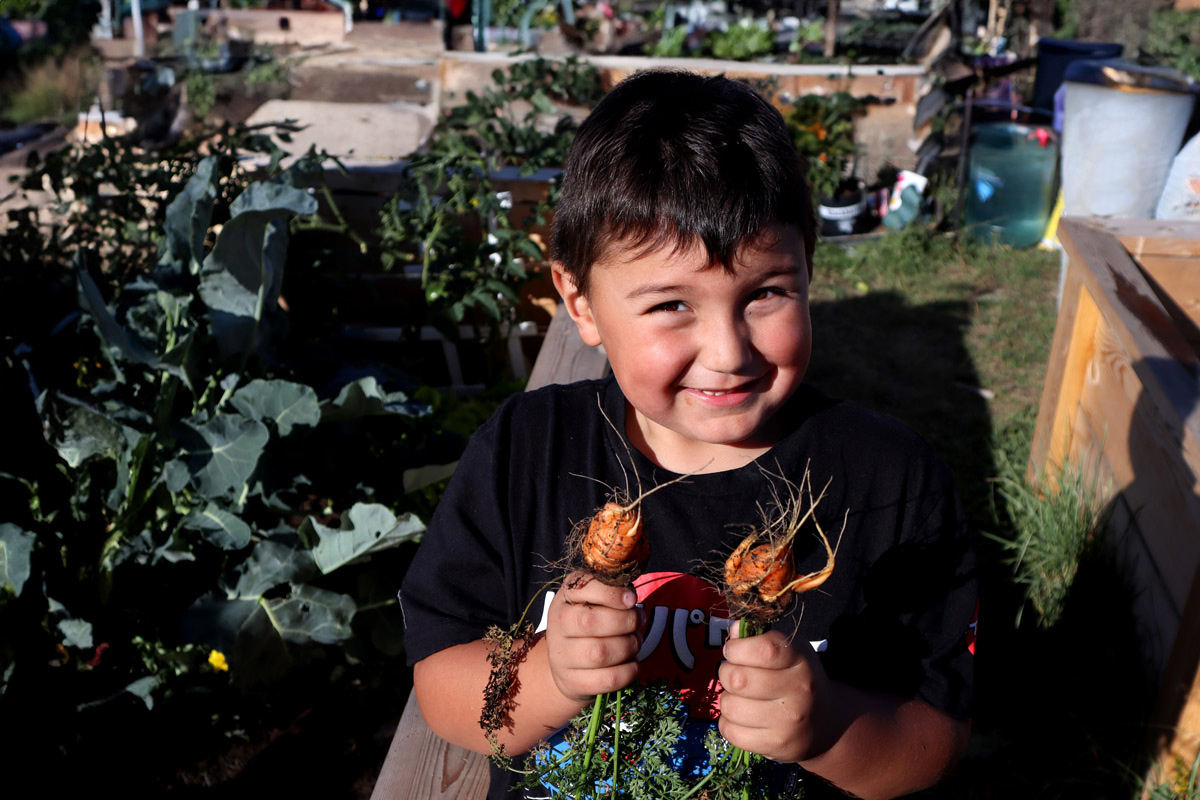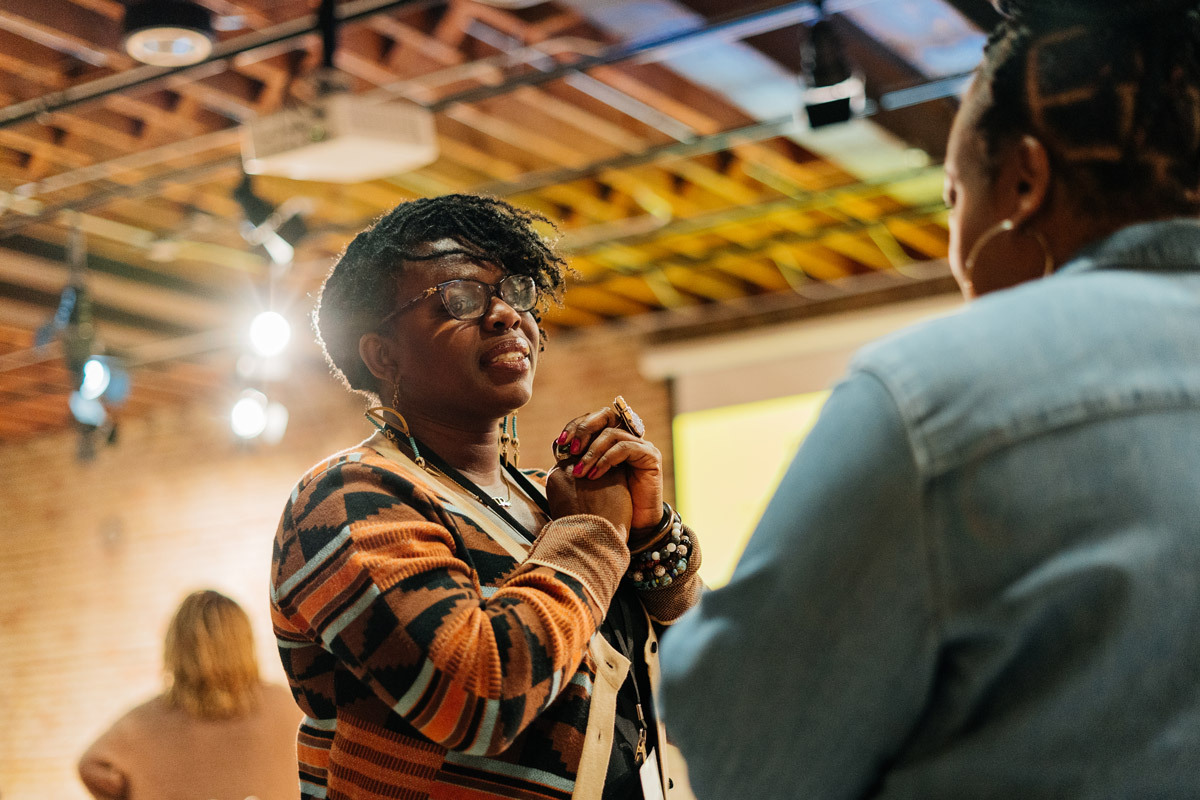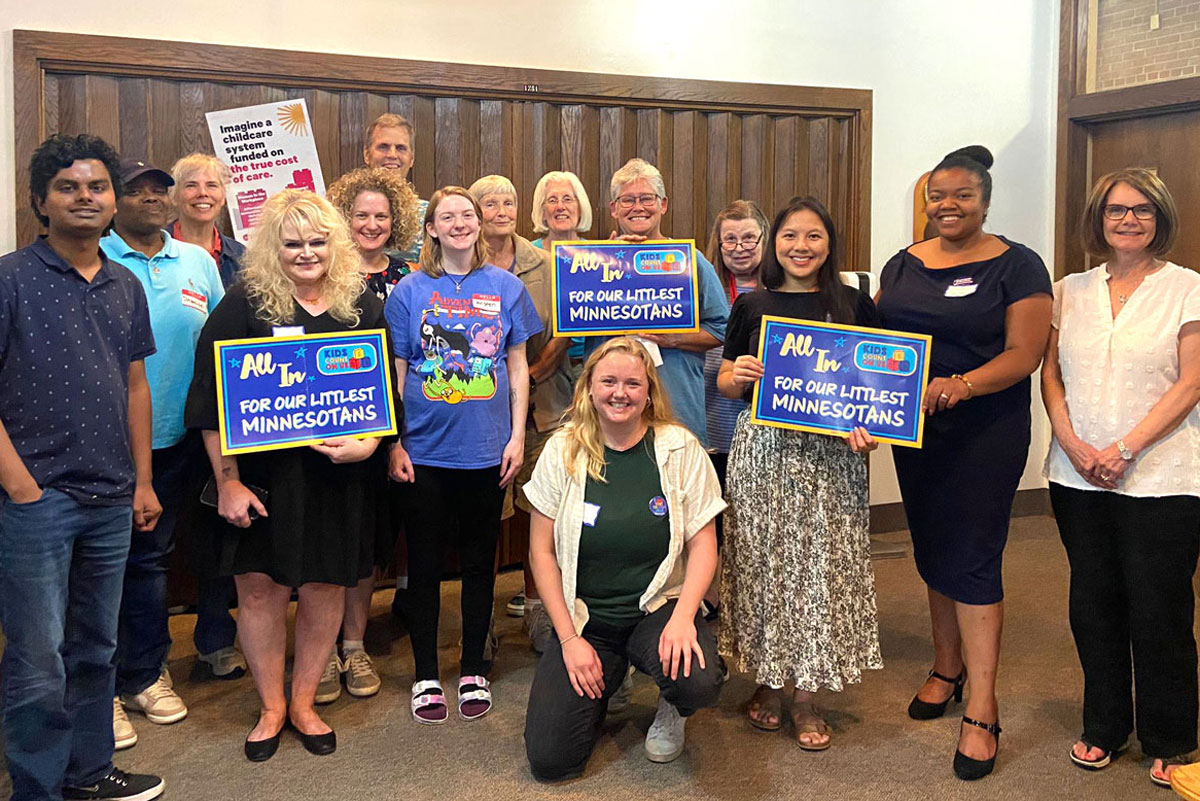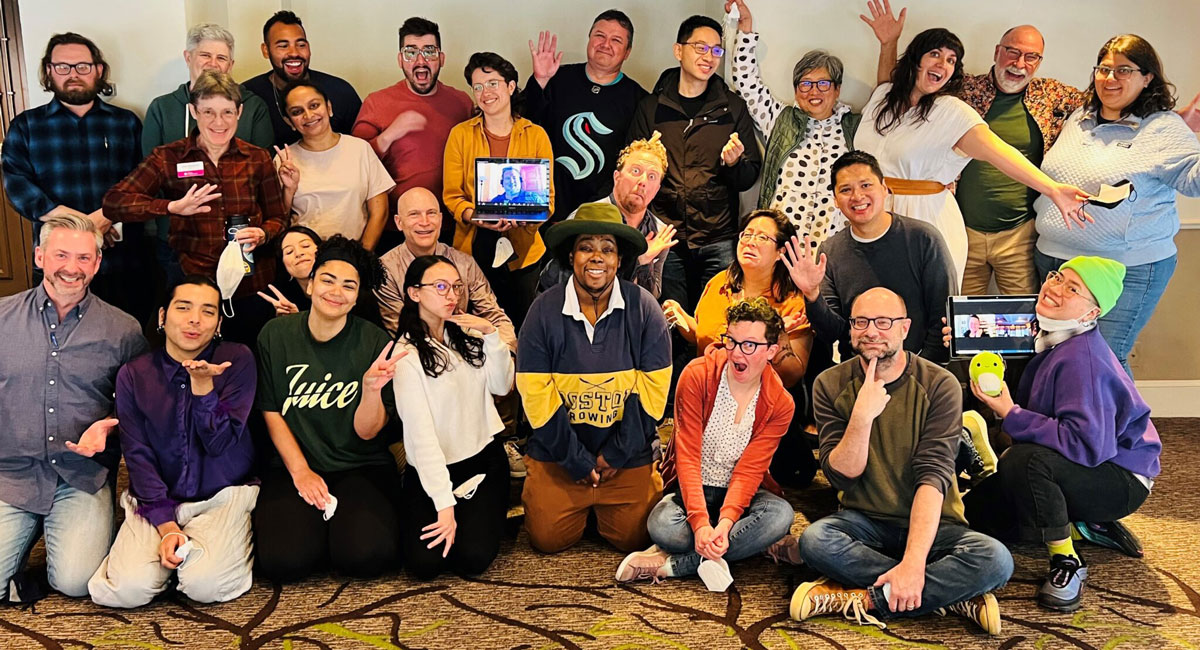
Pride Foundation board and staff from across the region gathered for a retreat in Portland, OR. Photo courtesy of Pride Foundation.
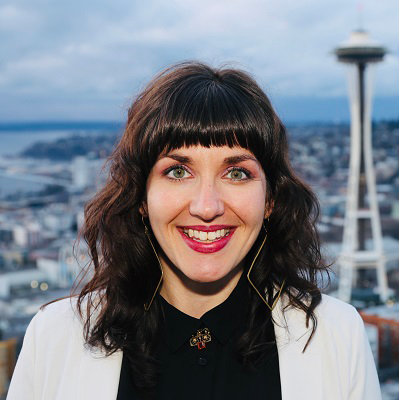
“We don’t believe LGBTQ+ people in rural communities (or anywhere) should have to leave their communities to be safe or feel as if they belong.”
Katie Carter
CEO, Pride Foundation
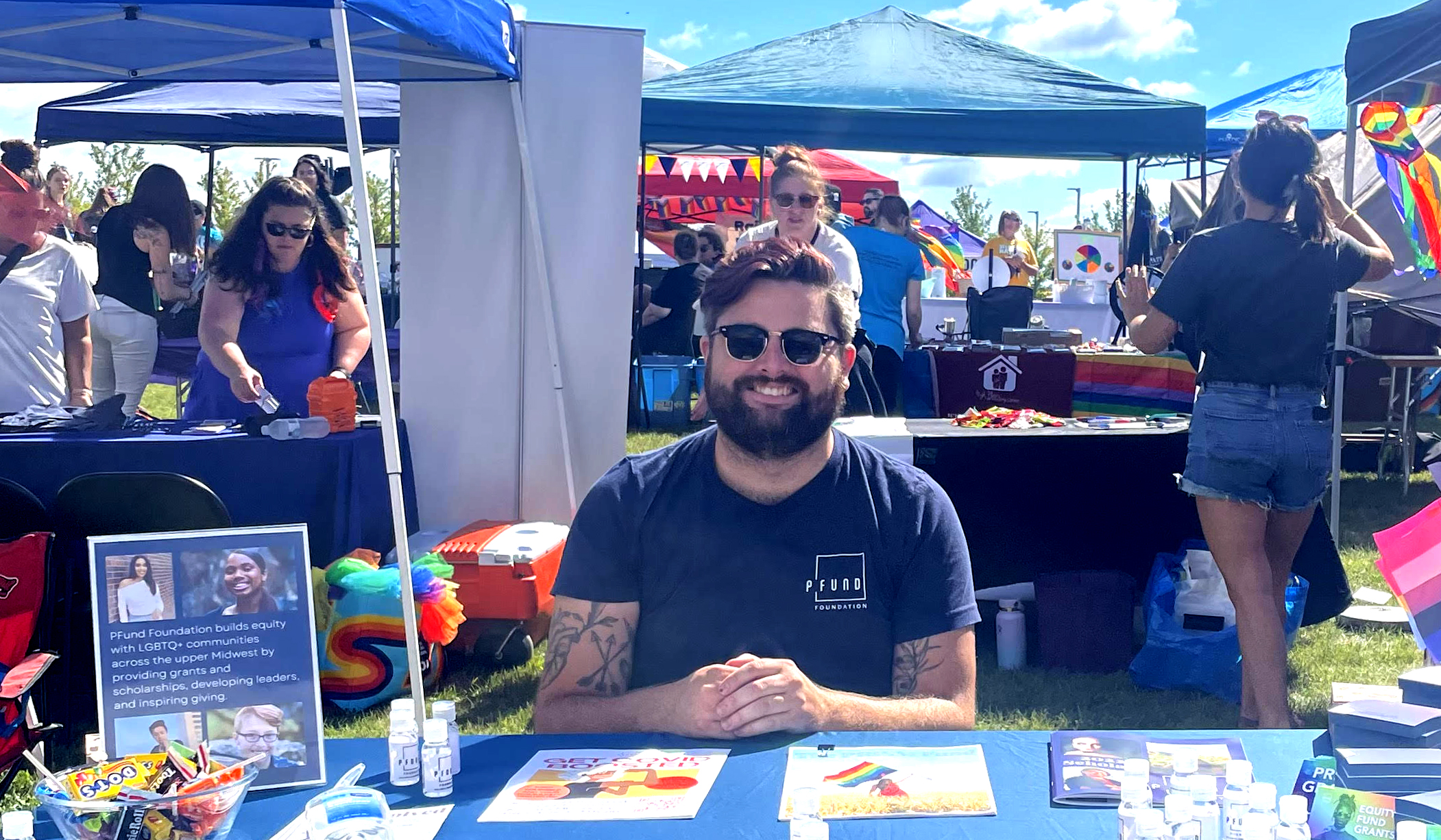
Executive Director Aaron Zimmerman representing PFund at 2023 Fargo–Moorhead Pride. Photo courtesy of PFund Foundation.
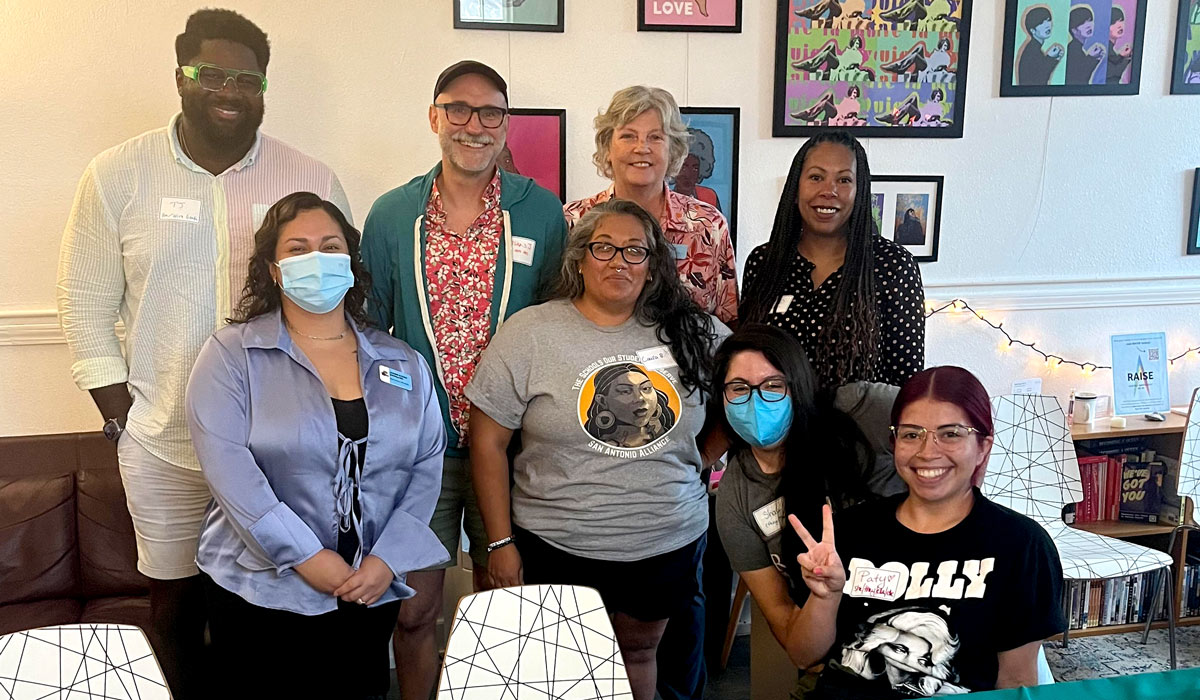
A listening session PFund held recently with the LGBT Center of SE Wisconsin, a 2023 PRISM grant recipient. Photo courtesy of PFund Foundation.
“Our overarching goal is to get money into the hands of people who have a deep knowledge of their [LGBTQ+] communities, and who can use that knowledge to bring positive change.”
Aaron Zimmerman
Executive Director, PFund

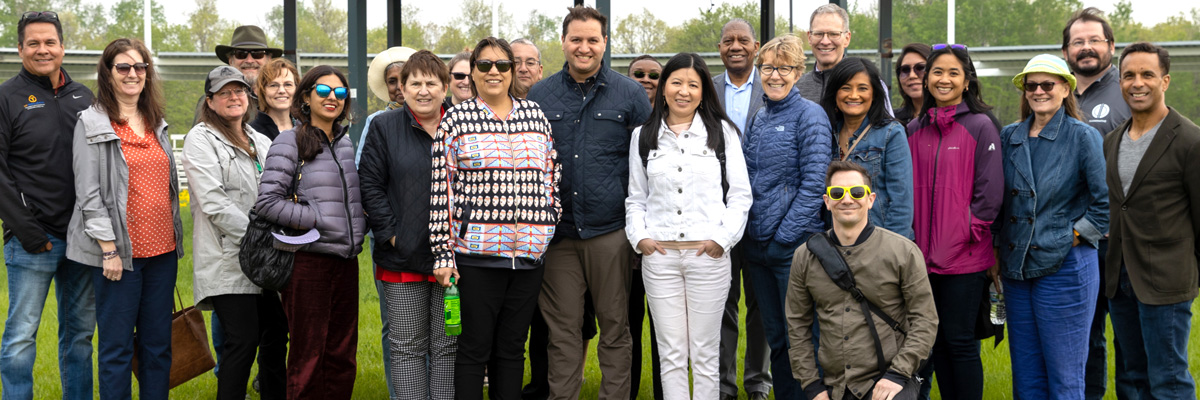
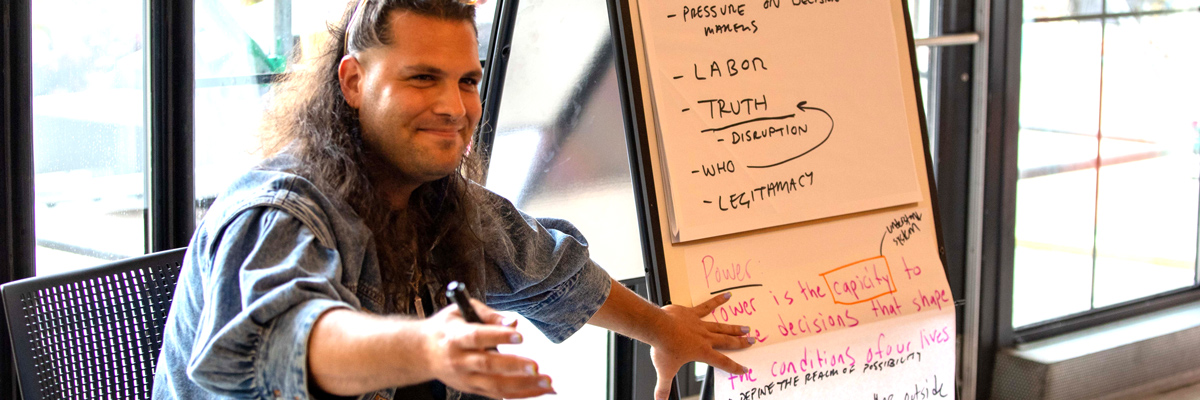
Photo top: Omni, director of community advocacy, research, and education for Pride Foundation, at the Protect Trans Youth rally in Boise, ID. Photo courtesy of Pride Foundation.

